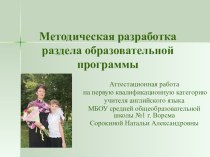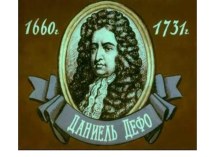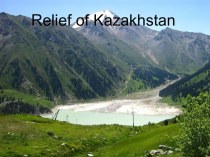- Главная
- Разное
- Бизнес и предпринимательство
- Образование
- Развлечения
- Государство
- Спорт
- Графика
- Культурология
- Еда и кулинария
- Лингвистика
- Религиоведение
- Черчение
- Физкультура
- ИЗО
- Психология
- Социология
- Английский язык
- Астрономия
- Алгебра
- Биология
- География
- Геометрия
- Детские презентации
- Информатика
- История
- Литература
- Маркетинг
- Математика
- Медицина
- Менеджмент
- Музыка
- МХК
- Немецкий язык
- ОБЖ
- Обществознание
- Окружающий мир
- Педагогика
- Русский язык
- Технология
- Физика
- Философия
- Химия
- Шаблоны, картинки для презентаций
- Экология
- Экономика
- Юриспруденция
Что такое findslide.org?
FindSlide.org - это сайт презентаций, докладов, шаблонов в формате PowerPoint.
Обратная связь
Email: Нажмите что бы посмотреть
Презентация на тему Claude Monet
Содержание
- 2. Oscar-Claude Monet ( 14 November 1840 – 5 December 1926) was
- 4. The first Impressionist exhibition was held in
- 5. Paintings 1858-1870
- 6. View at Rouelles, Le Havre 1858,
- 7. Mouth of the Seine at Honfleur, 1865,
- 8. Women in a Garden, 1866–1867,
- 9. Woman in a Garden, 1867,
- 10. Jardin à Sainte-Adresse, 1867,
- 11. The Luncheon, 1868
- 12. La Grenouillére 1869
- 13. The Magpie
- 14. Le port de Trouville (Breakwater at Trouville, Low Tide)
- 15. La plage de Trouville, 1870
- 16. Death of Camille In 1876, Camille Monet
- 17. John Berger describes the work as "a
- 18. Vétheuile After several difficult months following the
- 19. Paintings 1872-1879Jean Monet on his hobby horse,1872
- 20. Camille Monet on a Garden Bench,1873
- 21. The Artist's house at Argenteuil, 1873
- 22. Coquelicots, La promenade (Poppies), 1873
- 23. Argenteuil, 1874
- 24. The Studio Boat, 1874
- 25. Flowers on the riverbank at Argenteuil, 1877
- 26. Vétheuil in the Fog, 1879
- 27. Giverny At the beginning of May 1883,
- 28. Monet purchased additional land with a water
- 29. Monet's garden
- 30. In the Garden, 1895
- 31. Agapanthus, between 1914-1926
- 32. The rose arches, Giverny, 1913
- 33. Water Lilies and the Japanese bridge
- 34. Water Lilies, 1906
- 35. Water Lilies
- 36. Water Lilies
- 37. Water Lilies
- 38. Death Monet died of lung cancer on
- 39. Monet's late paintingsWater Lilies and Reflections of a Willow
- 40. Water-Lily Pond and Weeping Willow
- 41. Weeping Willow, 1918–1919
- 42. Weeping Willow, 1918–1919
- 43. House Among the Roses
- 44. The Rose Walk, Giverny
- 45. The Japanese Footbridge
- 46. The Garden at Giverny
- 47. Monet's methods In 1877 a series of
- 48. Series of paintingsLa Gare Saint-Lazare, 1877
- 49. Arrival of the Normandy Train, Gare Saint-Lazare, 1877
- 50. The Cliffs at Etretat, 1885
- 51. Sailboats behind the needle at Eretat, 1885
- 52. Two paintings from a series of grainstacks
- 53. Grainstacks, end of day, Autumn
- 54. Poplars (Autumn)
- 55. Poplars at the River Epte
- 56. The Seine Near Giverny
- 57. Morning on the Seine, 1898
- 58. Charing Cross Bridge
- 59. Charing Cross Bridge
- 60. London, Houses of Parliament. The Sun Shining through the Fog
- 61. Two paintings from a series of The Houses of Parliament, London
- 62. Grand Canal, Venice
- 63. Скачать презентацию
- 64. Похожие презентации
Oscar-Claude Monet ( 14 November 1840 – 5 December 1926) was a founder of French Impressionist painting, and the most consistent and prolific practitioner of the movement's philosophy of expressing one's perceptions before nature, especially as applied to plein-air landscape painting. The term "Impressionism" is

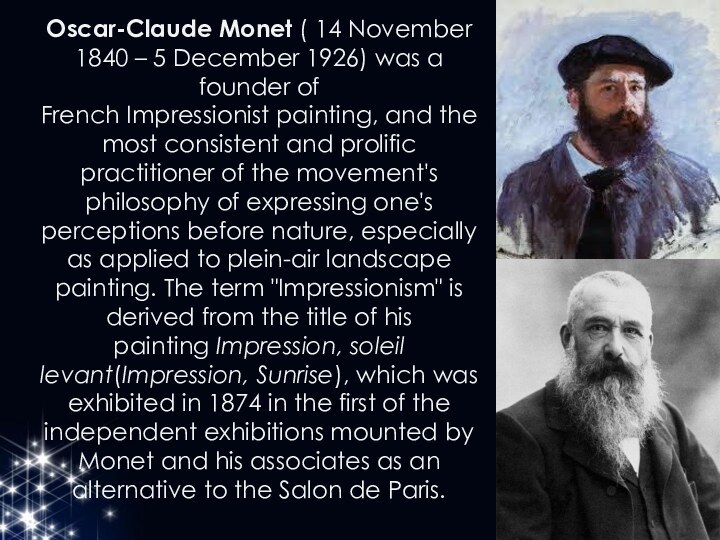
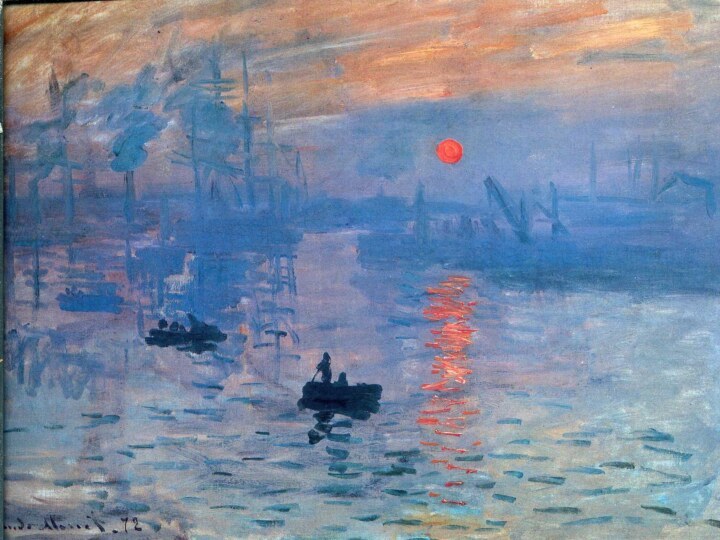
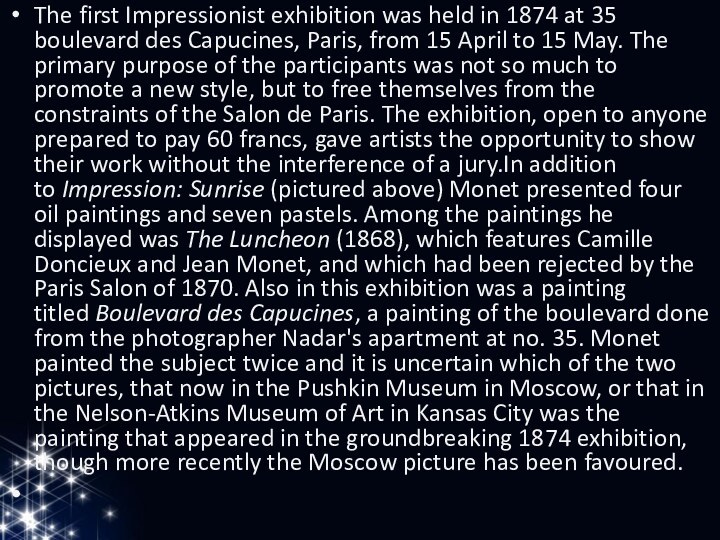
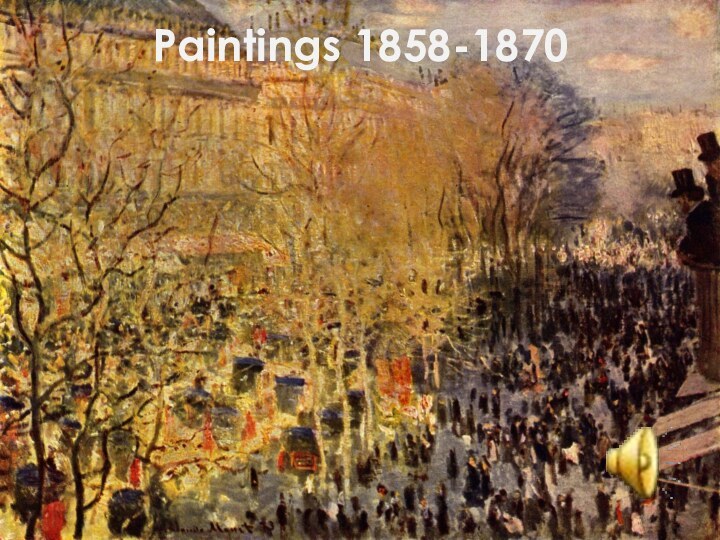
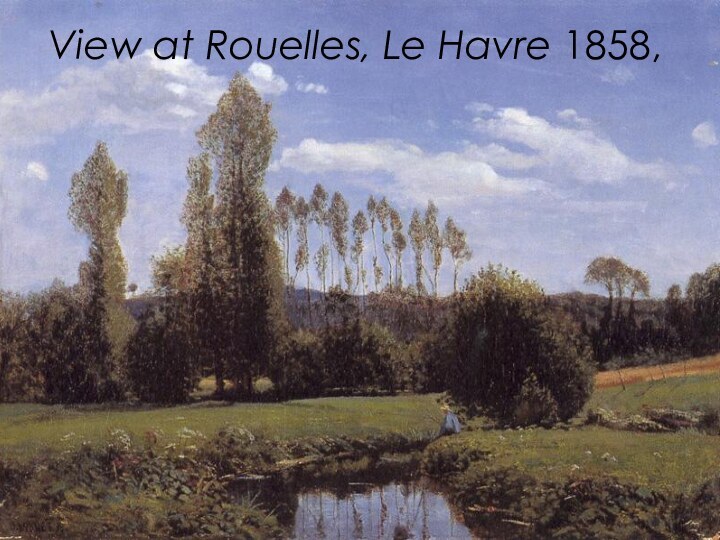
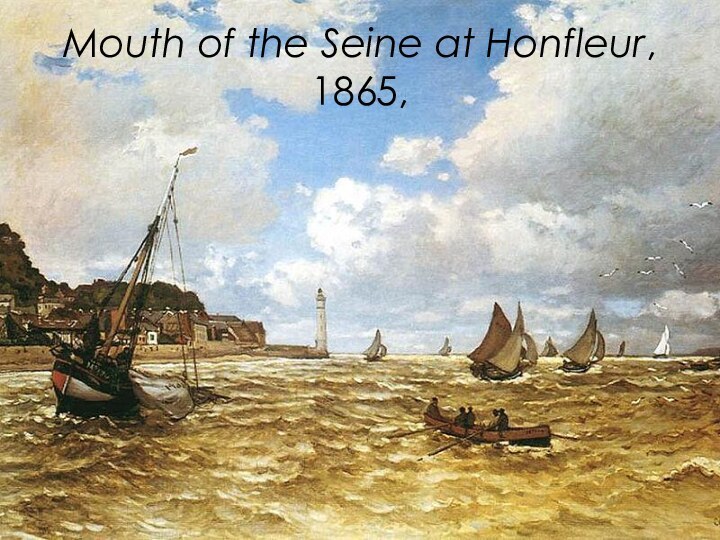
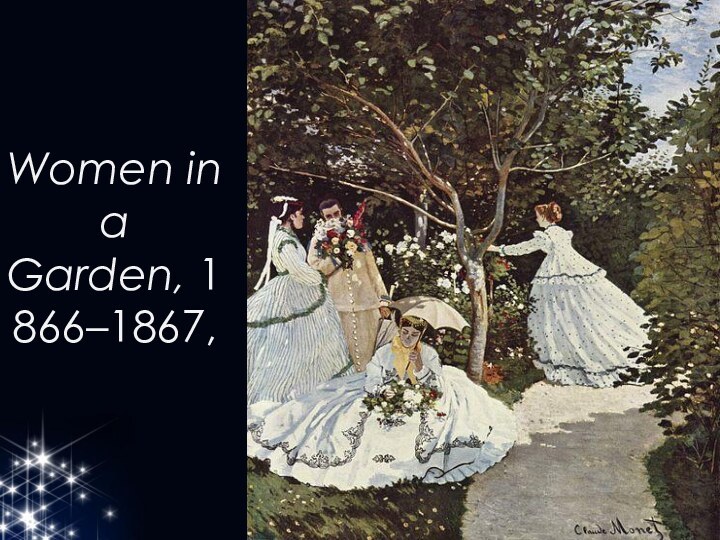
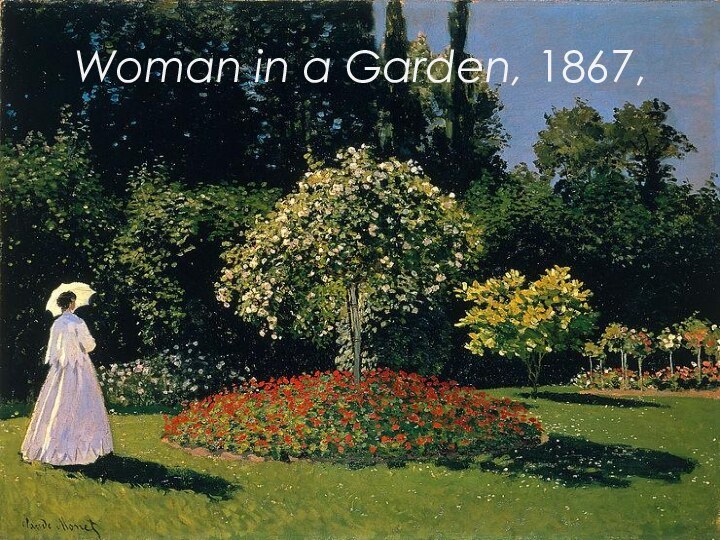
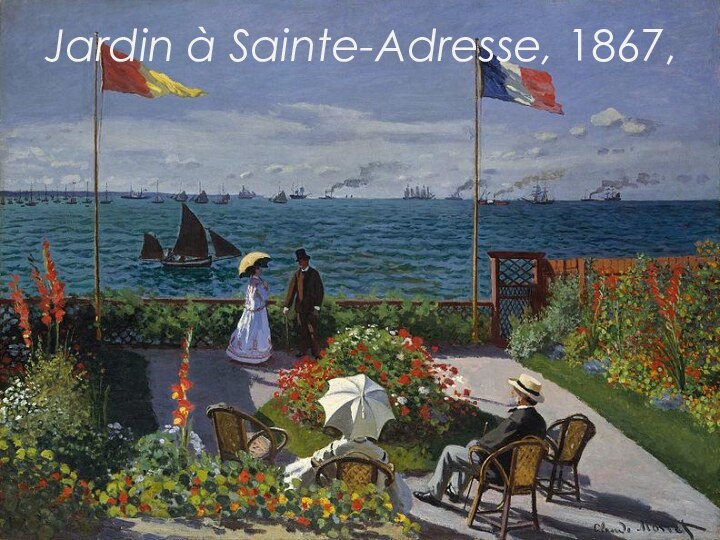
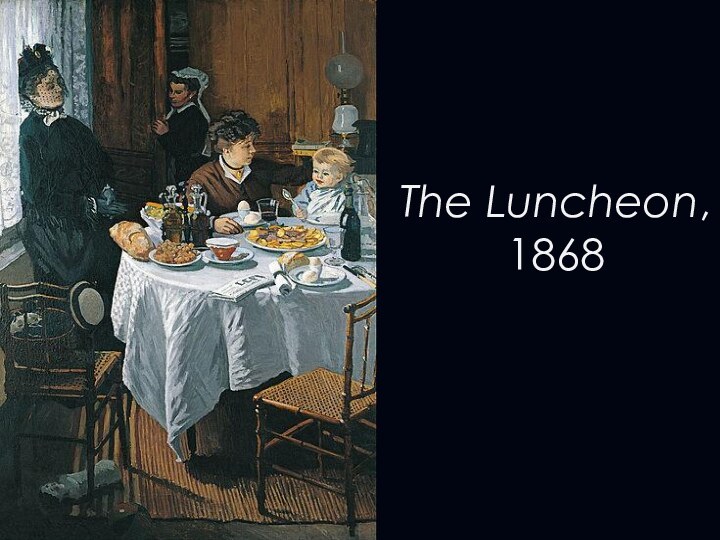
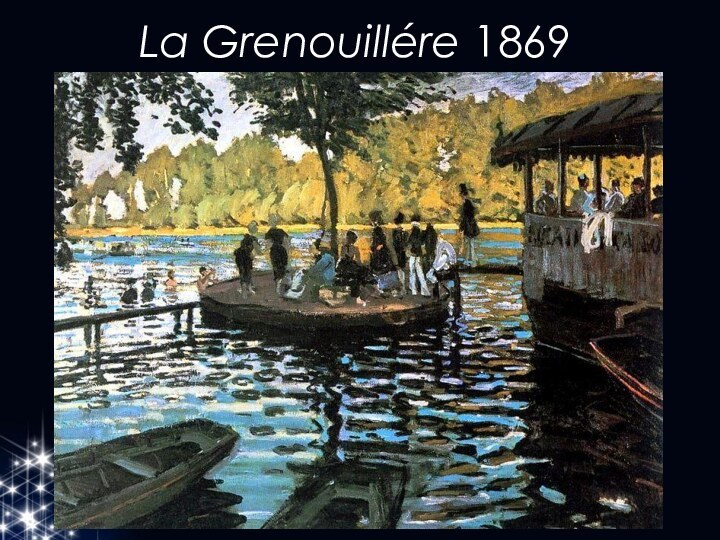
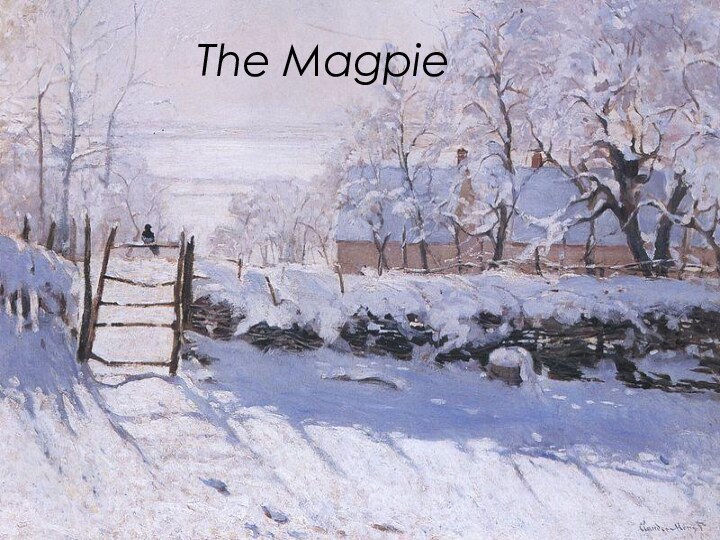
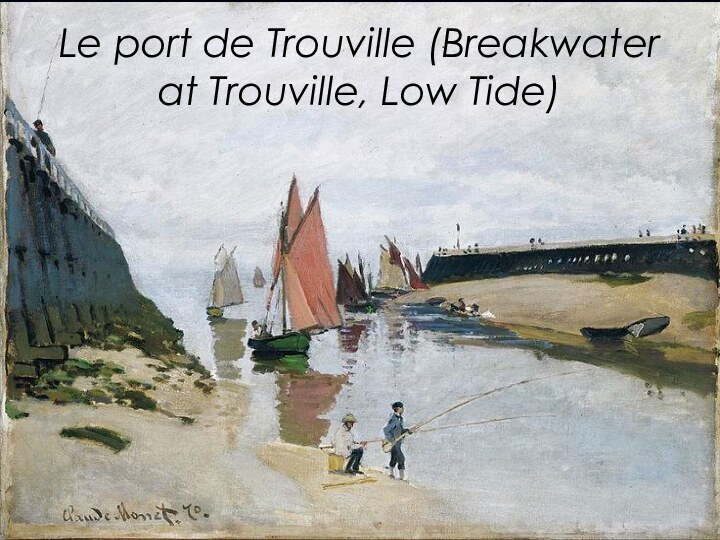

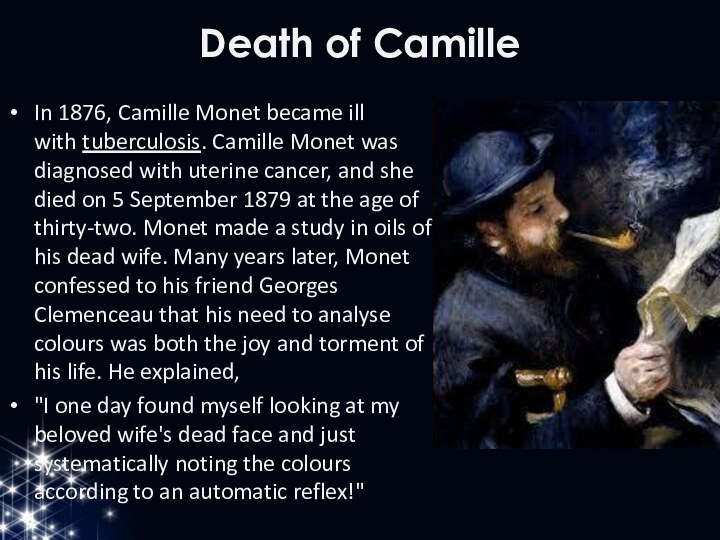
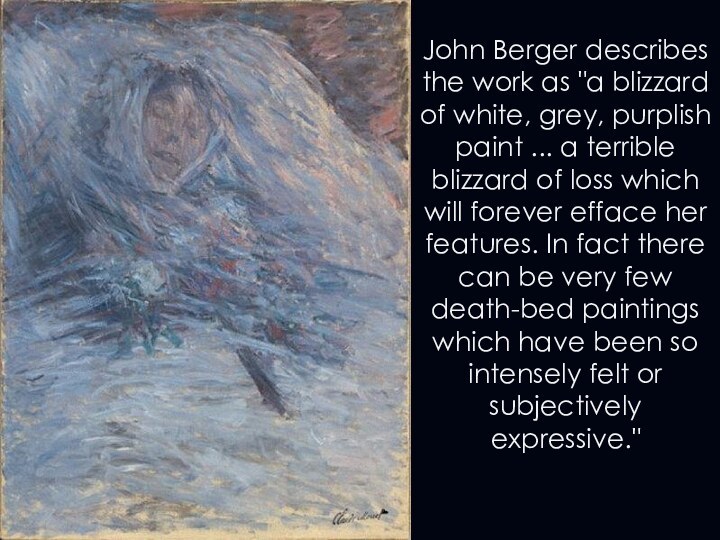


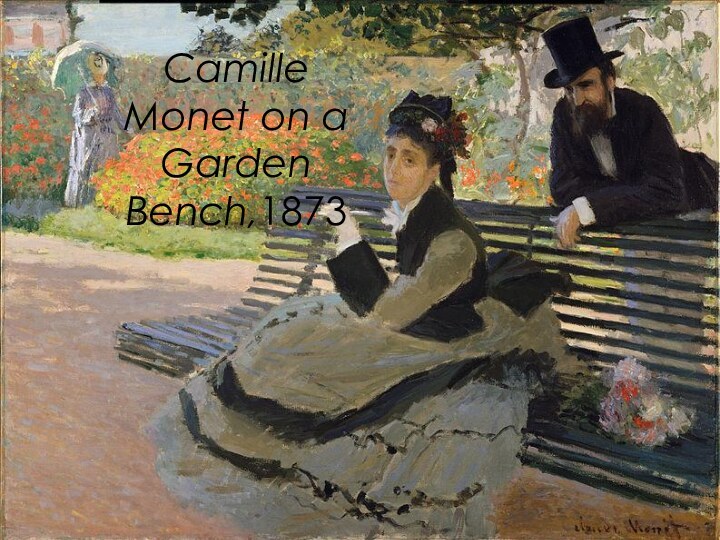
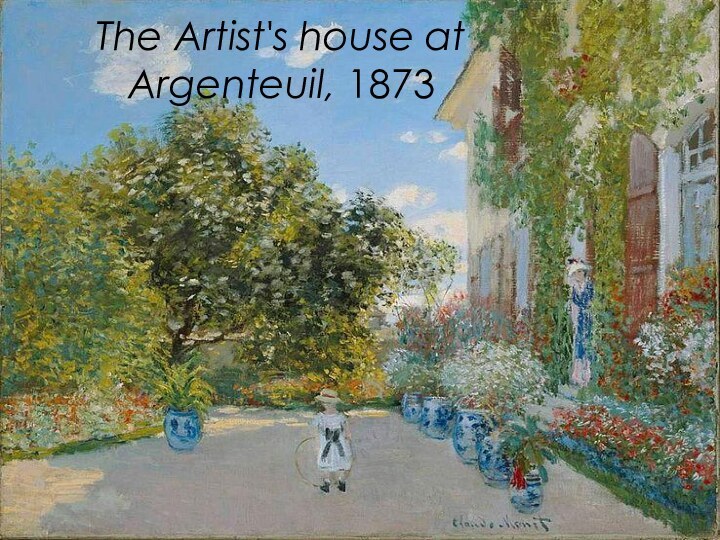
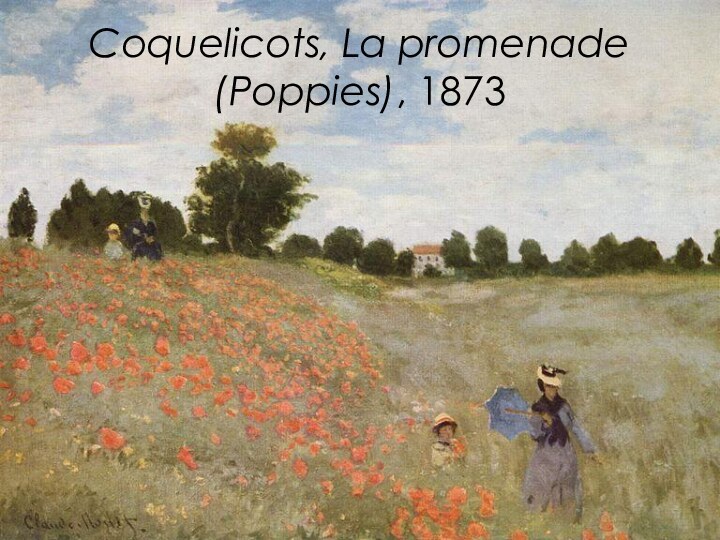
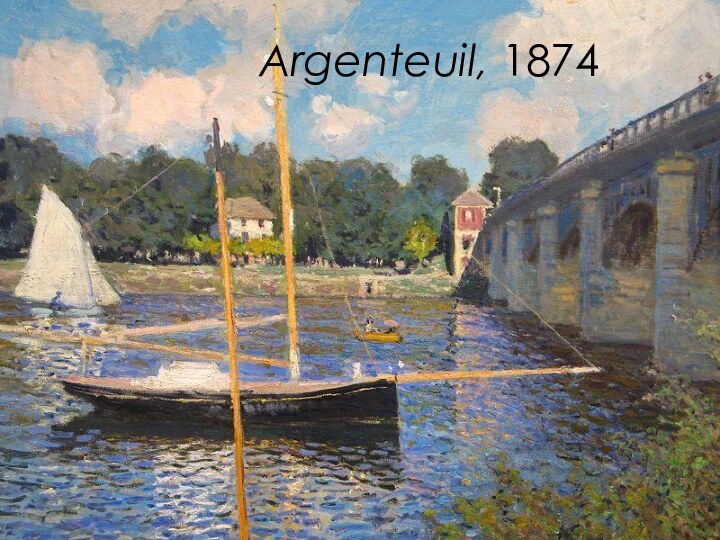
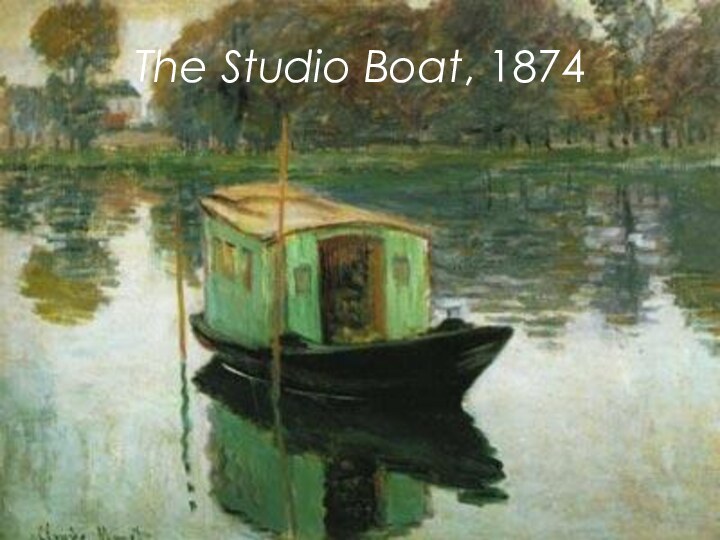
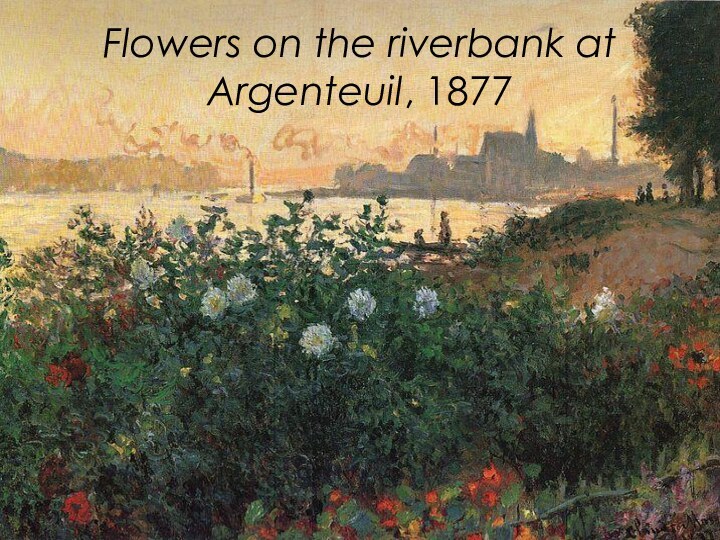
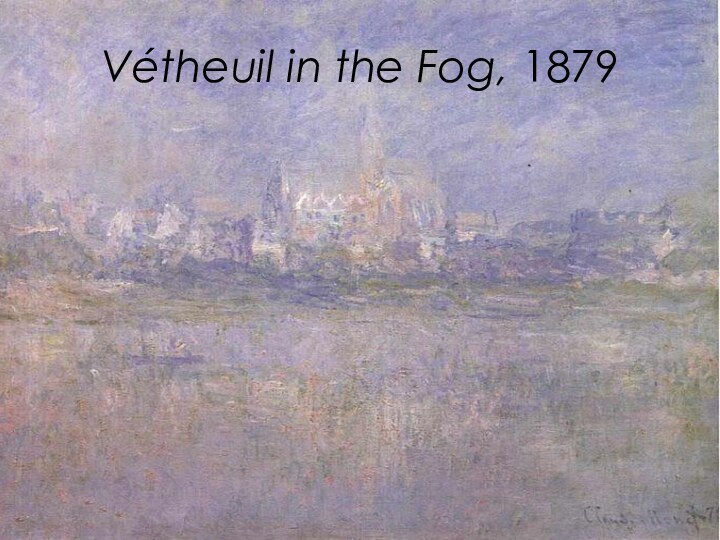
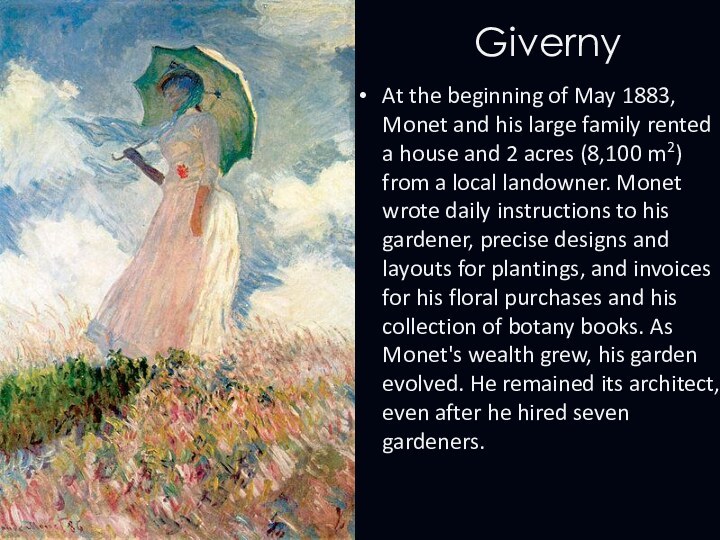
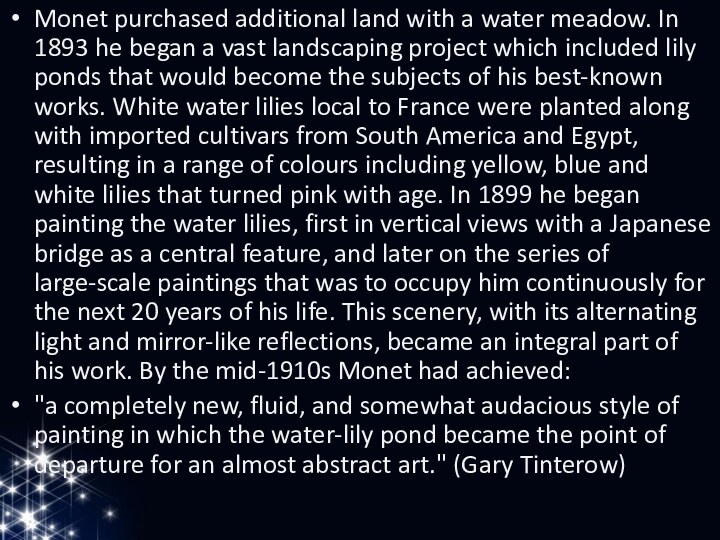

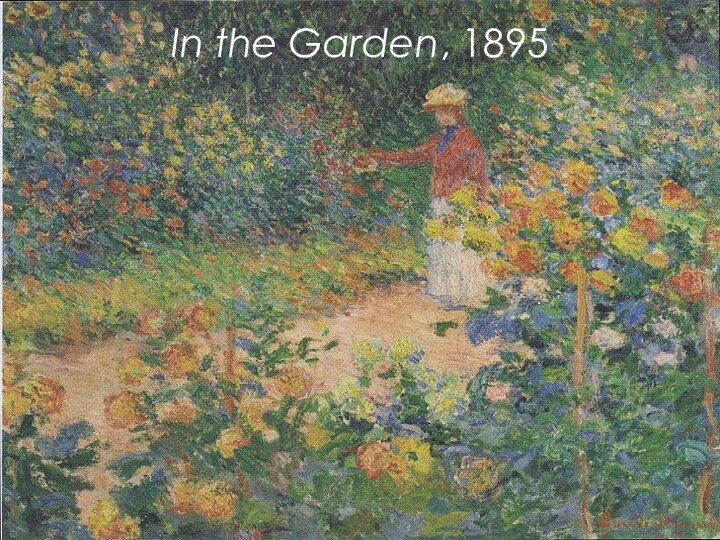
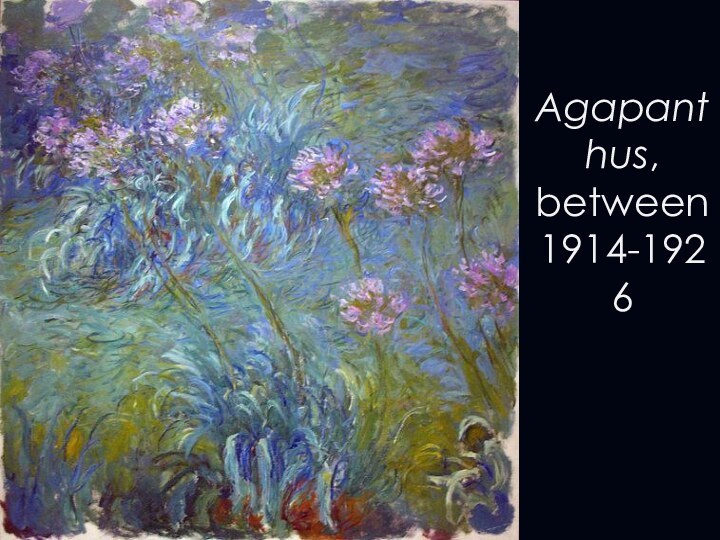
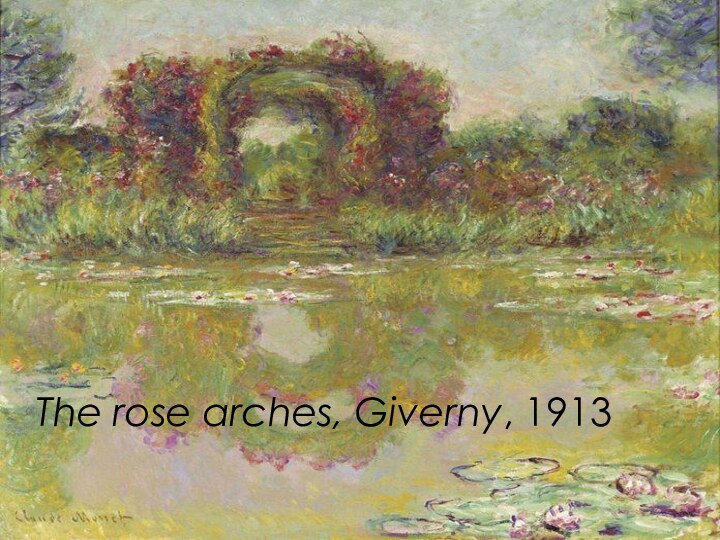
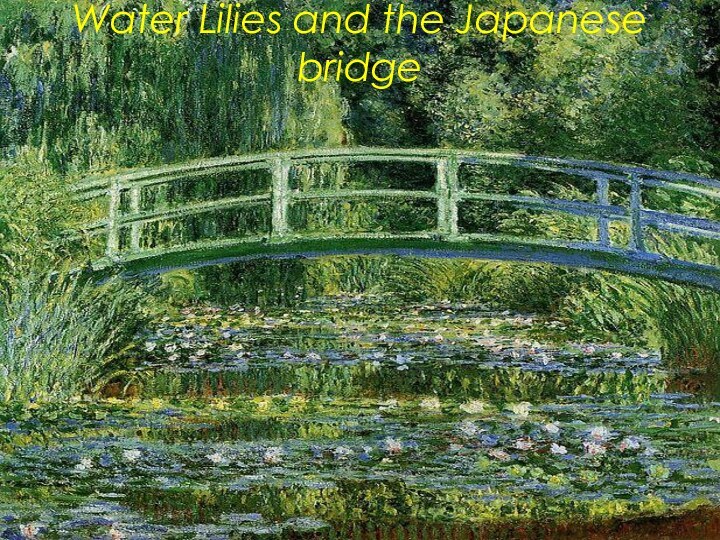
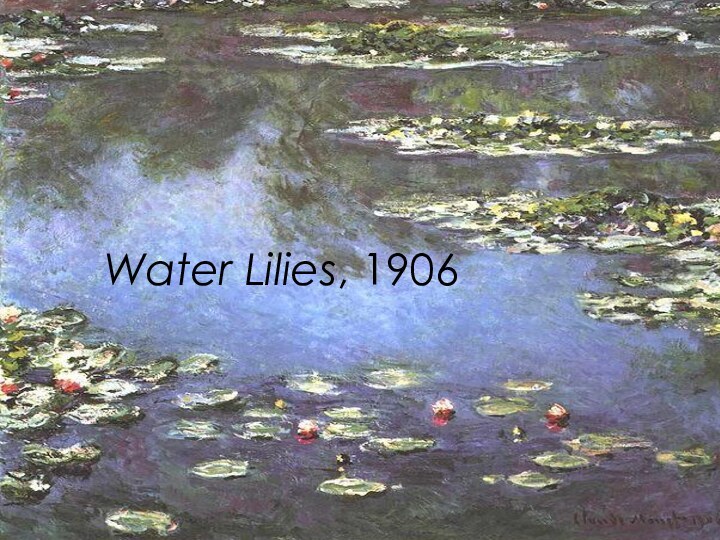
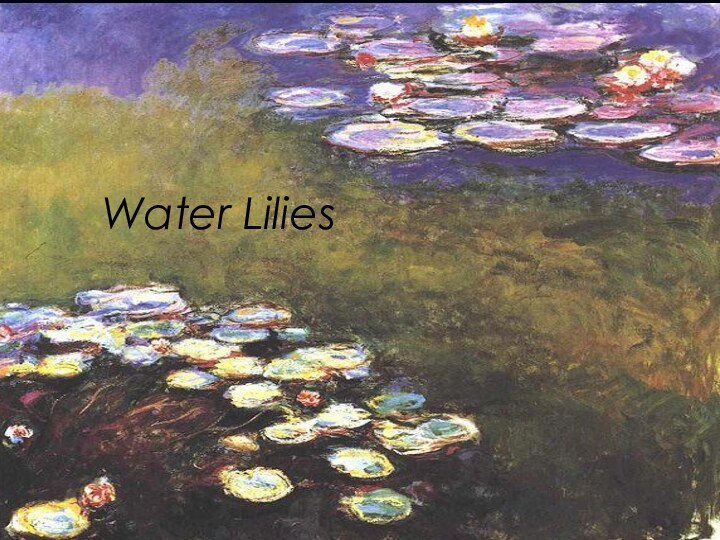
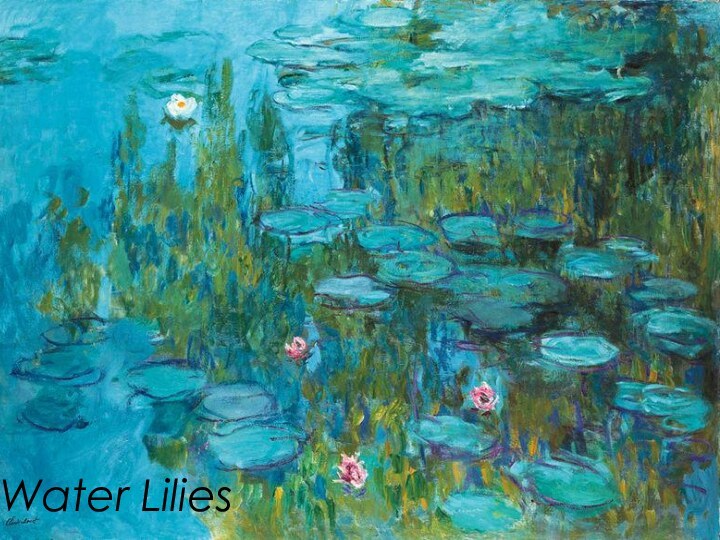
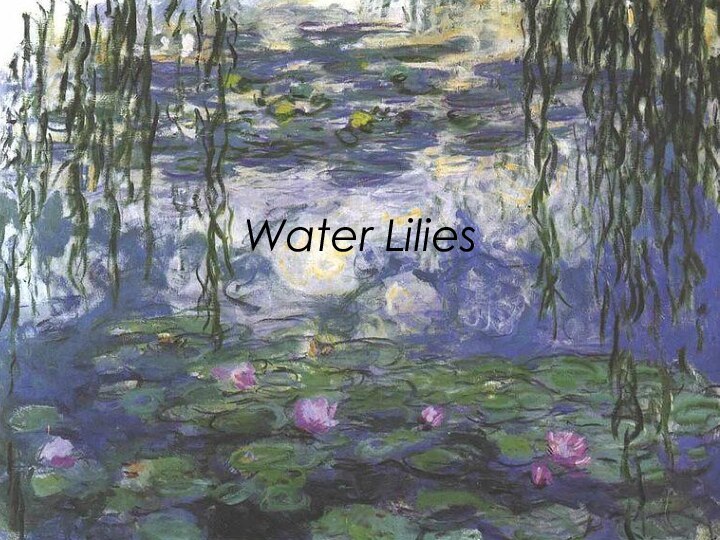
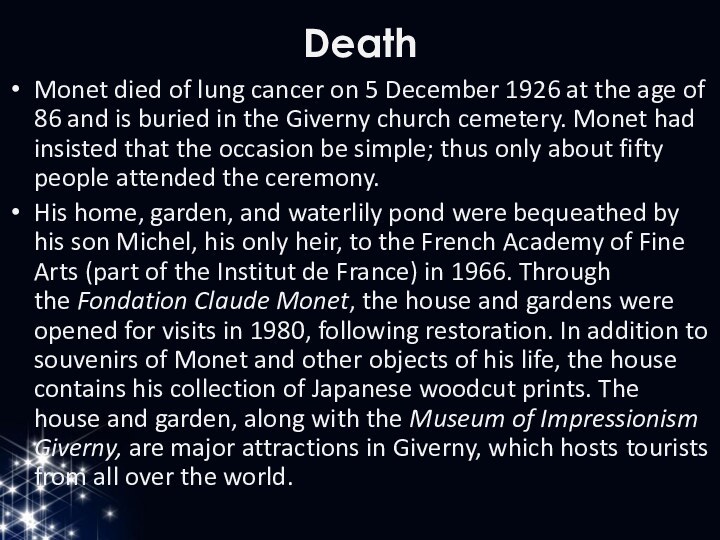
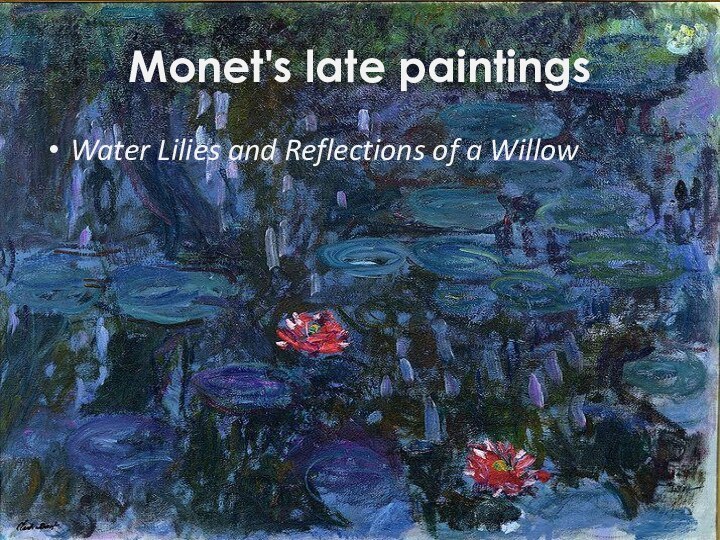
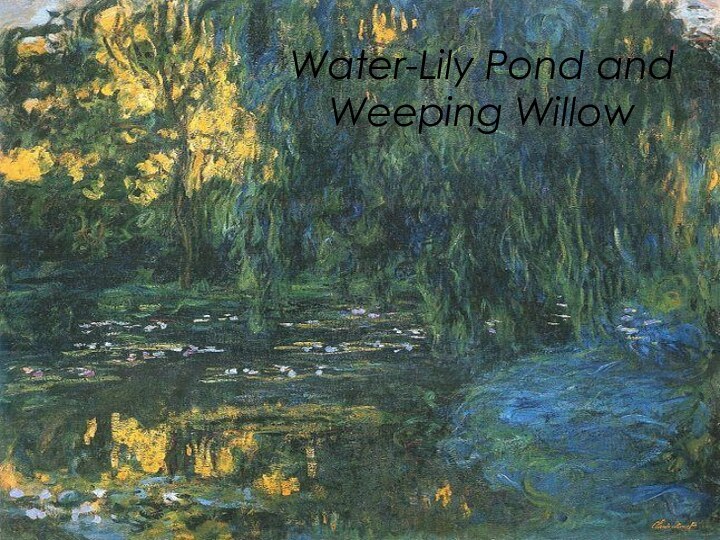
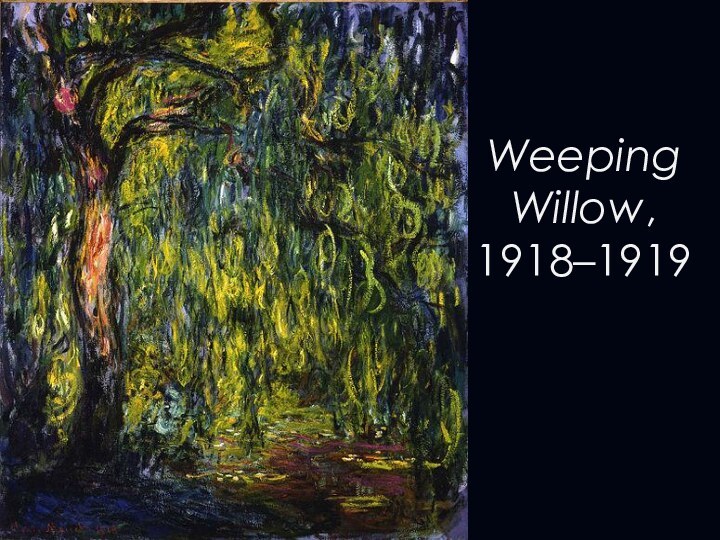
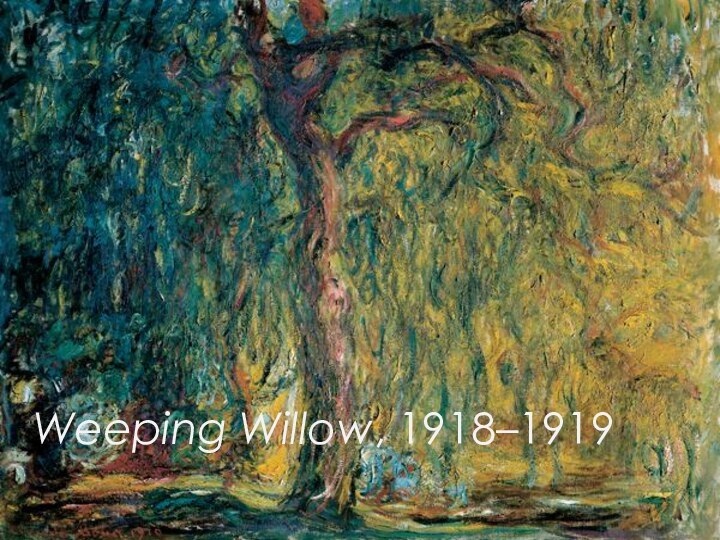
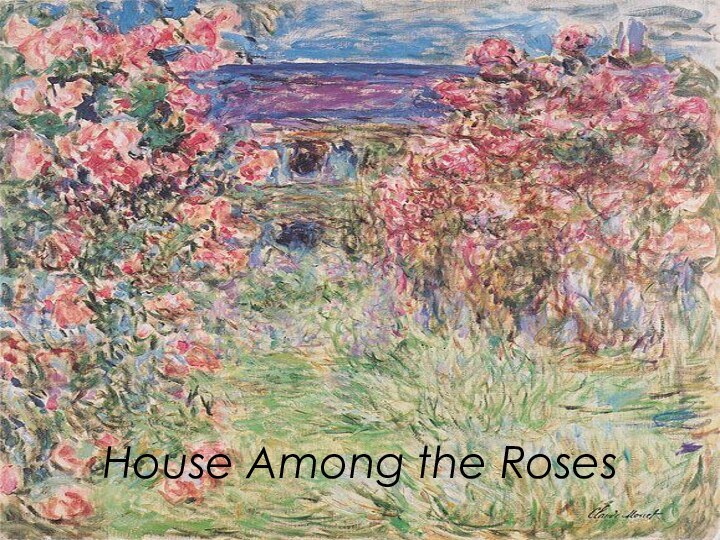
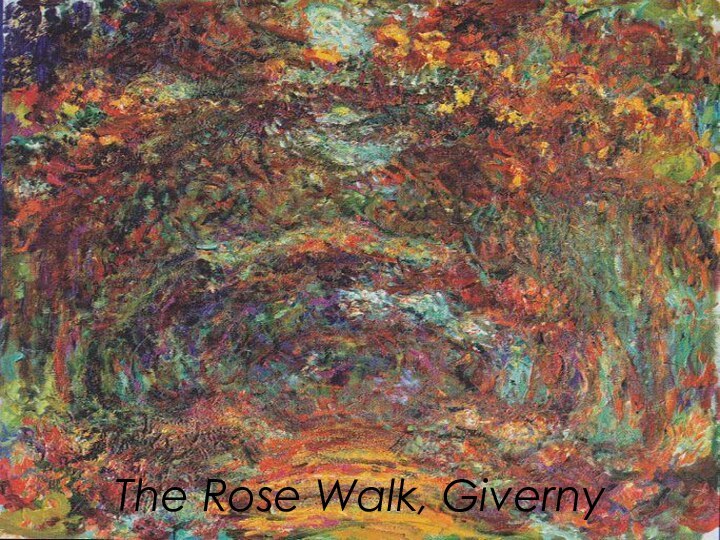
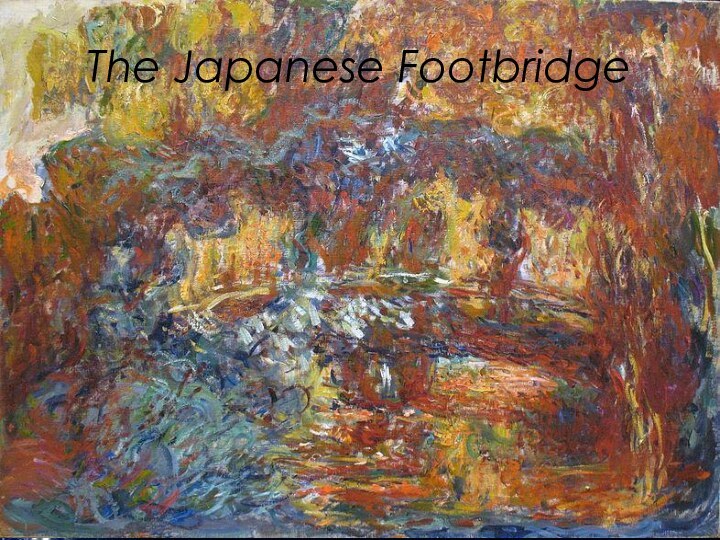

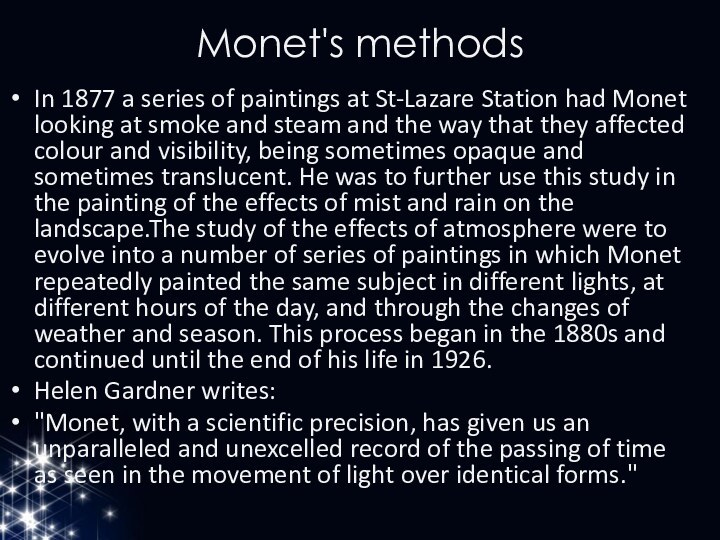
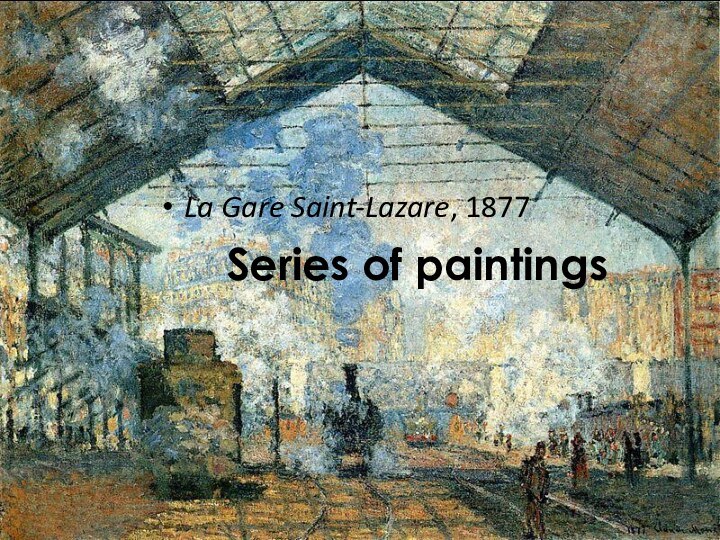
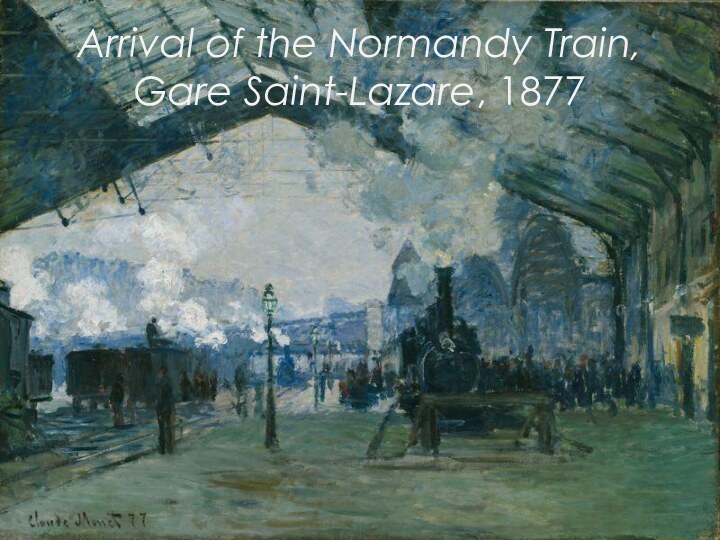
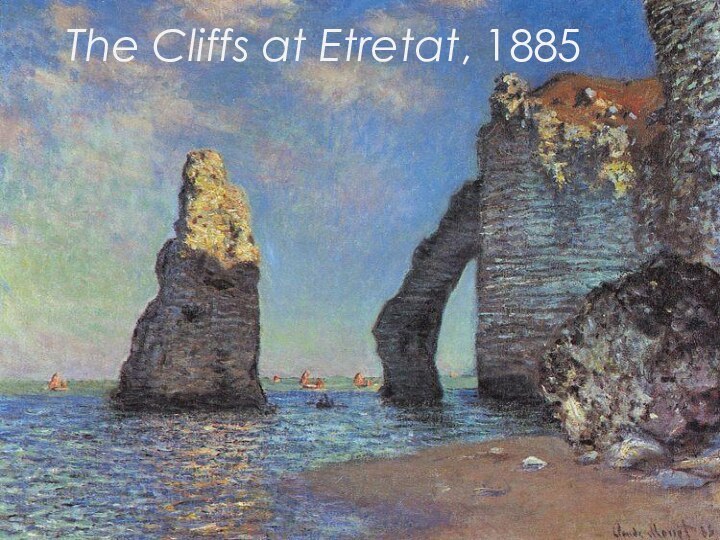
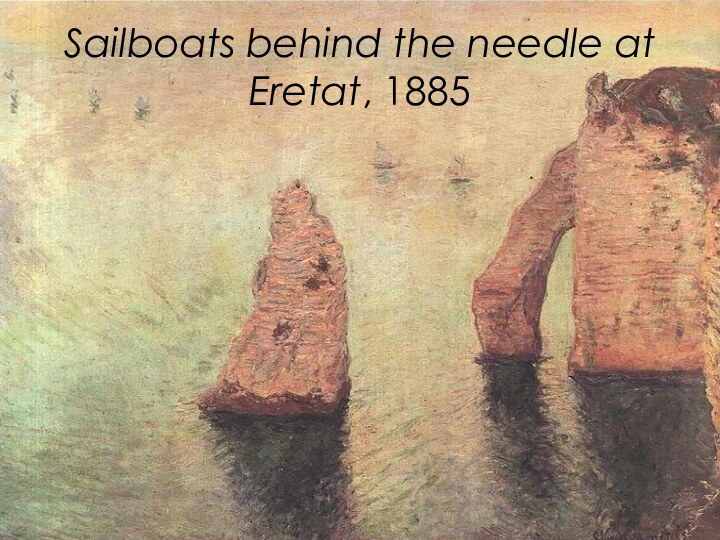
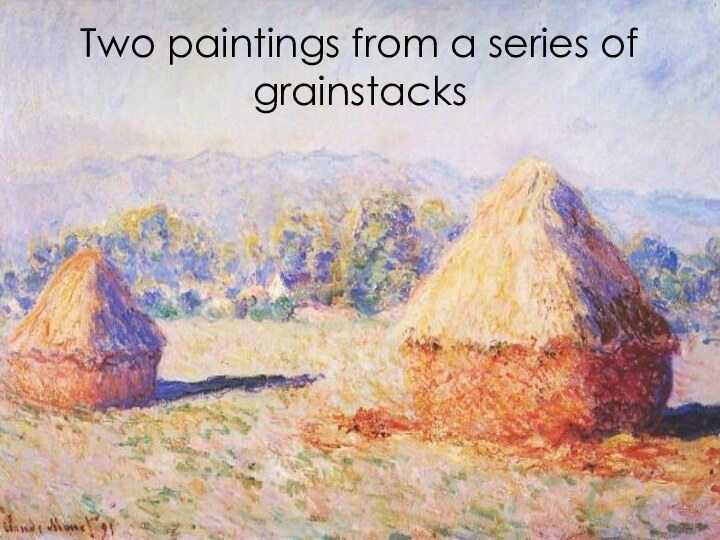
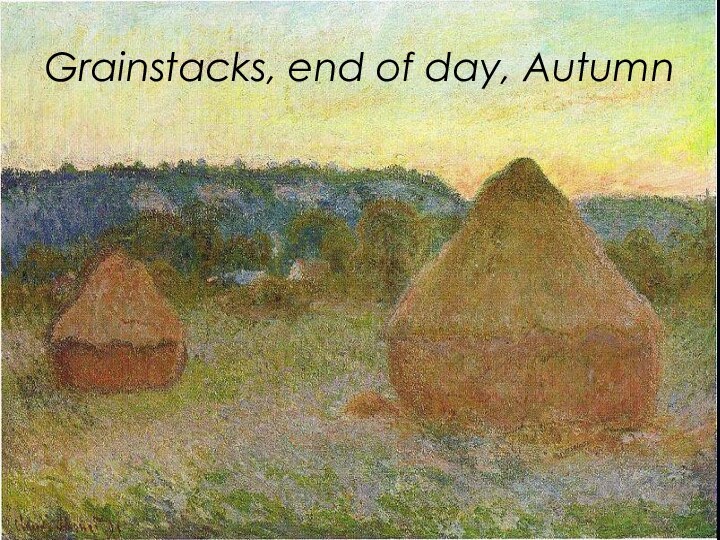
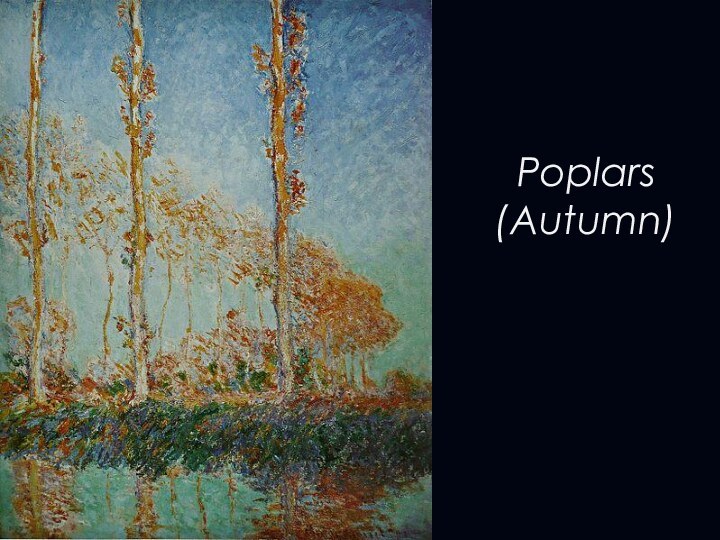

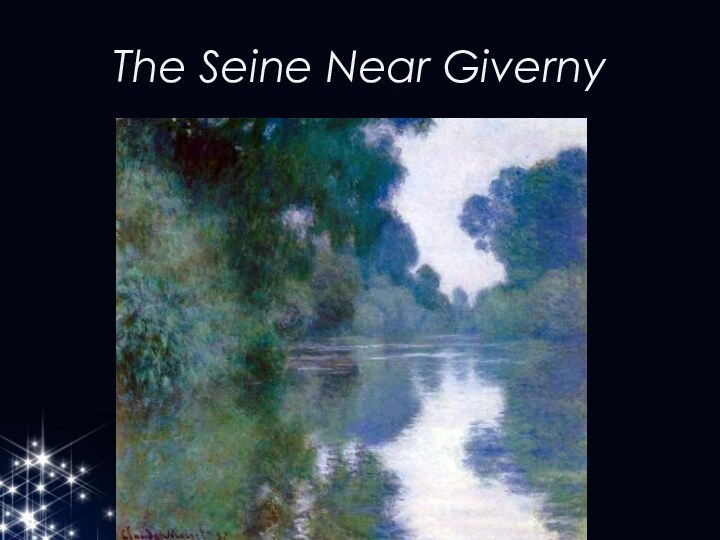

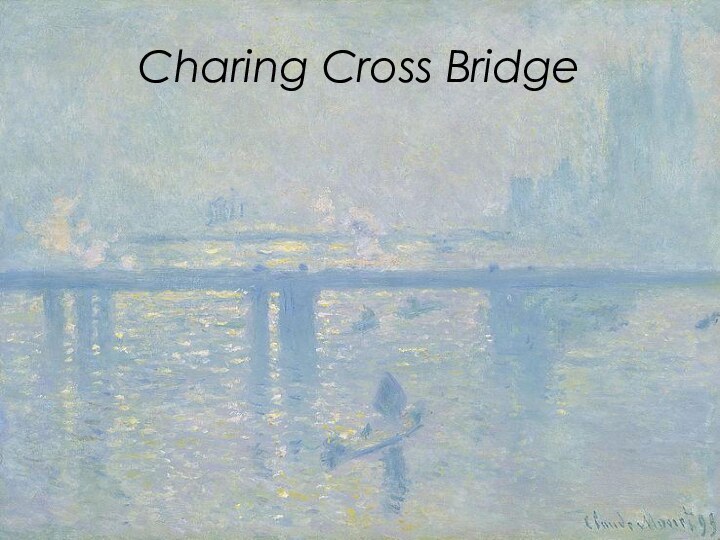
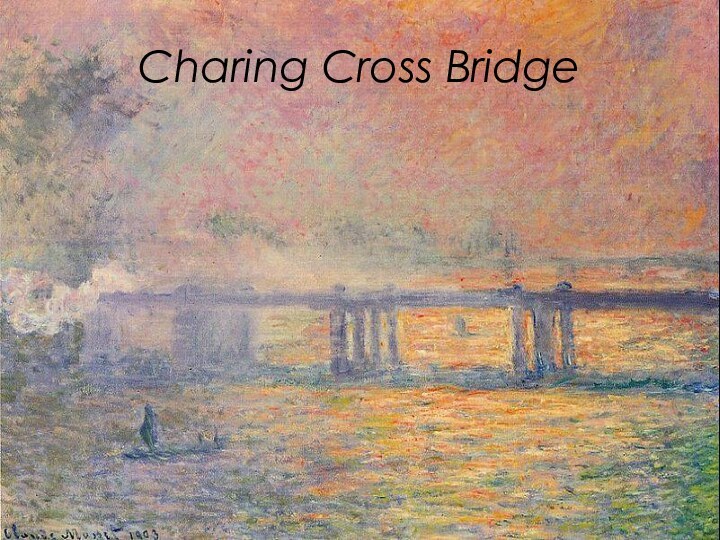
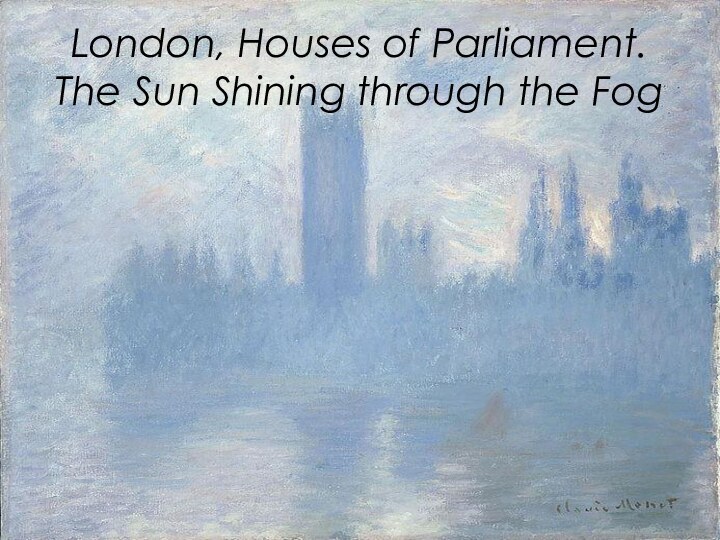
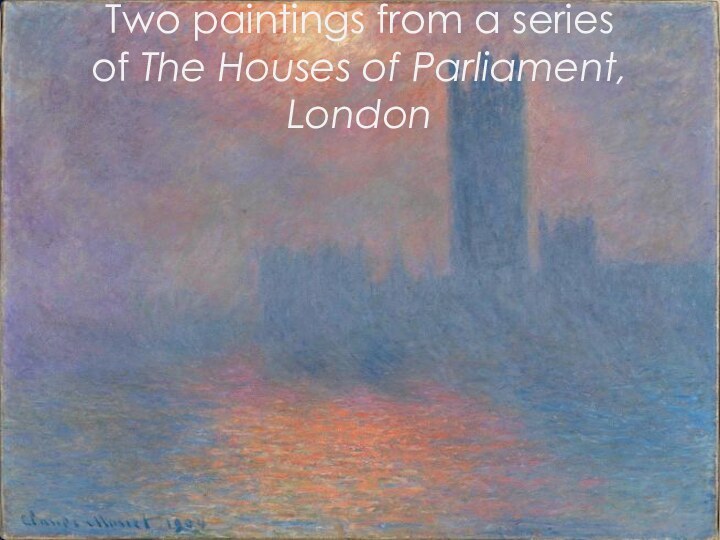
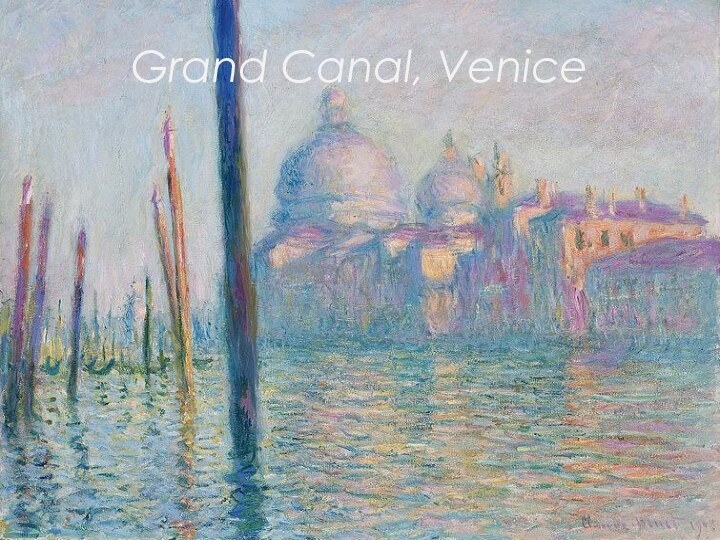
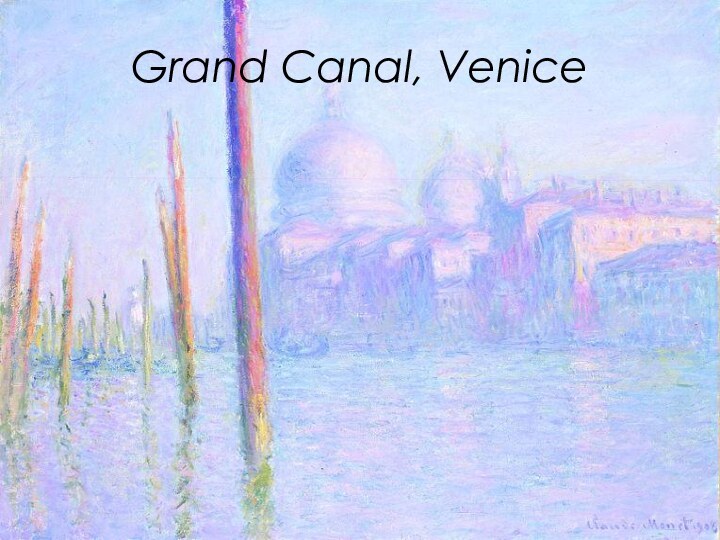
Слайд 4 The first Impressionist exhibition was held in 1874
at 35 boulevard des Capucines, Paris, from 15 April
to 15 May. The primary purpose of the participants was not so much to promote a new style, but to free themselves from the constraints of the Salon de Paris. The exhibition, open to anyone prepared to pay 60 francs, gave artists the opportunity to show their work without the interference of a jury.In addition to Impression: Sunrise (pictured above) Monet presented four oil paintings and seven pastels. Among the paintings he displayed was The Luncheon (1868), which features Camille Doncieux and Jean Monet, and which had been rejected by the Paris Salon of 1870. Also in this exhibition was a painting titled Boulevard des Capucines, a painting of the boulevard done from the photographer Nadar's apartment at no. 35. Monet painted the subject twice and it is uncertain which of the two pictures, that now in the Pushkin Museum in Moscow, or that in the Nelson-Atkins Museum of Art in Kansas City was the painting that appeared in the groundbreaking 1874 exhibition, though more recently the Moscow picture has been favoured.
Слайд 16
Death of Camille
In 1876, Camille Monet became ill
with tuberculosis. Camille Monet was diagnosed with uterine cancer, and she
died on 5 September 1879 at the age of thirty-two. Monet made a study in oils of his dead wife. Many years later, Monet confessed to his friend Georges Clemenceau that his need to analyse colours was both the joy and torment of his life. He explained,"I one day found myself looking at my beloved wife's dead face and just systematically noting the colours according to an automatic reflex!"
Слайд 17 John Berger describes the work as "a blizzard
of white, grey, purplish paint ... a terrible blizzard of
loss which will forever efface her features. In fact there can be very few death-bed paintings which have been so intensely felt or subjectively expressive."
Слайд 18
Vétheuile
After several difficult months following the death of
Camille, Monet began to create some of his best
paintings of the 19th century. During the early 1880s, Monet painted several groups of landscapes and seascapes in what he considered to be campaigns to document the French countryside. These began to evolve into series of pictures in which he documented the same scene many times in order to capture the changing of light and the passing of the seasons.
Слайд 27
Giverny
At the beginning of May 1883, Monet and
his large family rented a house and 2 acres
(8,100 m2) from a local landowner. Monet wrote daily instructions to his gardener, precise designs and layouts for plantings, and invoices for his floral purchases and his collection of botany books. As Monet's wealth grew, his garden evolved. He remained its architect, even after he hired seven gardeners.Слайд 28 Monet purchased additional land with a water meadow.
In 1893 he began a vast landscaping project which
included lily ponds that would become the subjects of his best-known works. White water lilies local to France were planted along with imported cultivars from South America and Egypt, resulting in a range of colours including yellow, blue and white lilies that turned pink with age. In 1899 he began painting the water lilies, first in vertical views with a Japanese bridge as a central feature, and later on the series of large-scale paintings that was to occupy him continuously for the next 20 years of his life. This scenery, with its alternating light and mirror-like reflections, became an integral part of his work. By the mid-1910s Monet had achieved:"a completely new, fluid, and somewhat audacious style of painting in which the water-lily pond became the point of departure for an almost abstract art." (Gary Tinterow)
Слайд 38
Death
Monet died of lung cancer on 5 December
1926 at the age of 86 and is buried
in the Giverny church cemetery. Monet had insisted that the occasion be simple; thus only about fifty people attended the ceremony.His home, garden, and waterlily pond were bequeathed by his son Michel, his only heir, to the French Academy of Fine Arts (part of the Institut de France) in 1966. Through the Fondation Claude Monet, the house and gardens were opened for visits in 1980, following restoration. In addition to souvenirs of Monet and other objects of his life, the house contains his collection of Japanese woodcut prints. The house and garden, along with the Museum of Impressionism Giverny, are major attractions in Giverny, which hosts tourists from all over the world.
Слайд 47
Monet's methods
In 1877 a series of paintings at
St-Lazare Station had Monet looking at smoke and steam
and the way that they affected colour and visibility, being sometimes opaque and sometimes translucent. He was to further use this study in the painting of the effects of mist and rain on the landscape.The study of the effects of atmosphere were to evolve into a number of series of paintings in which Monet repeatedly painted the same subject in different lights, at different hours of the day, and through the changes of weather and season. This process began in the 1880s and continued until the end of his life in 1926.Helen Gardner writes:
"Monet, with a scientific precision, has given us an unparalleled and unexcelled record of the passing of time as seen in the movement of light over identical forms."


